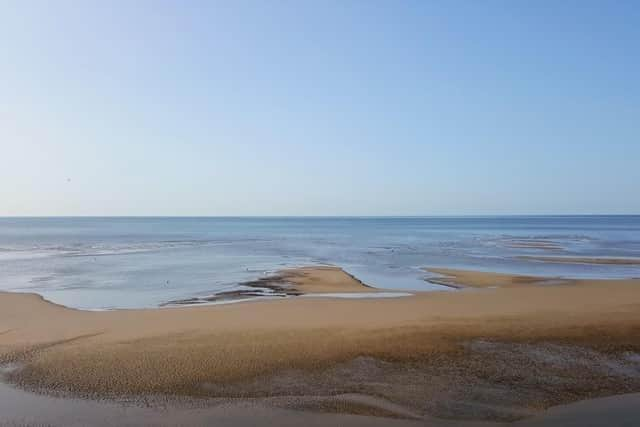Tragic case of two men dying just hours apart after taking drugs in Blackpool


Robert Mander and David McKeeman both took a hit of a potent drug combination of heroin, crack cocaine and methadone, often referred to as a speedball, on June 26 this year. The pair, who at that time were both homeless, took the drugs in a cubicle of the public toilets close to the Gynn Square tram stop, on North Shore promenade. Mr Mander, 56, collapsed at around 12.30am and Mr McKeeman, 43, tried to seek help.

Frantic effort to save his life
By random coincidence, an acquaintance of both men, David Robertson was passing by and, on Mr McKeeman's urging, went to a nearby property to obtain a quantity of adrenalin-base drug, naxolone, in a frantic bid to try and revive Mr Mander. But tragically, it is believed Mr Mander was already dead and efforts by Mr Robertson to carry out CPR failed to revive him.
Advertisement
Hide AdAdvertisement
Hide AdPolice and an ambulance were called to the scene and Mr Mander taken to Blackpool Victoria Hospital, were he was pronounced dead at 1.35am. Just hours later, Mr McKeeman himself was found dead less than a mile away, washed up on the beach near the go kart track in the Uncle Tom's Cabin area of North Shore, having ended up in the sea. Two separate inquests were held at Blackpool Coroners Court for each of the two men, on consecutive days, led by Blackpool and Fylde coroner Alan Wilson.
Drugs combination proved fatal
At the inquest for Mr Mander on Tuesday October 31, pathologist Dr Dariusz Golka said that although the deceased had a number of health issues, none of these contributed to is death, and none of the drugs taken independently would be likely to prove fatal. However, the combination of all three together had, in Mander's case, led to severe oxygen deprivation which had caused his death.
Mr Wilson asked the leading police officer who attended the scene, Det Insp Simon Pritchard, if there had been any signs that Mr Mander had been forcibly given the drugs against his will, but the policeman said that was clearly not the case. The coroner recorded a verdict of a drug-related death in the case of Mr Mander.
The following day, Wednesday November 1, an inquest was held for Mr McKeeman, who the court heard had only moved to Blackpool from his native Scotland in April this year and was known by the name of Davey.
Advertisement
Hide AdAdvertisement
Hide AdDiscovered on beach
The court heard how McKeeman's body was found on the beach, just north of the go kart track, after a cyclist called into an hotel to raise the alert. Although an ambulance was called at 8am and he was taken to hospital, he had already died.
Pathologist Dr Sameer Shaktawat said there were abrasions to his face and body consistent with someone bein in the sea for some time, but no suspicious injuries. Dr Shaktawat said there were clear sins that Mr McKeeman had drowned, with the combinations of heroin, crack cocaine and methadone in his body a secondary cause.
Det Insp Stephen Montgomery, who attended the scene, was asked if the deaths of McKeeman and Mr Mander, who were known to have taken drugs together earlier, had been affected by a bad batch of heroin. The policeman said investigations found this was not the case.
He said: “There was no impact on the local drugs community, apart from these two men. Obviously we are investigating drugs issues all the time but we were not looking into that, specific to this case.”
Advertisement
Hide AdAdvertisement
Hide AdIt was believed that Mr McKeeman entered the water some time after 1am but the absence of CCTV meant there was no evidence to show exactly when he went into the sea.
Tried to turn life around
The court heard from Mr McKeeman's mother, who said her son had become involved with drugs round 20 years before. With the support of family, he had tried at various points to kick the habit and had at one stage obtained a job as a car workshop manager, had a house, a relationship and a young son, successfully turning his life around
But he had been badly affected by the death of his father, which caused him to relapse, turning to drugs when he struggled to cope. Asked if she believed her son may have deliberately entered the water to take his own life, having perhaps been upset by the death of Mr Mander earlier that morning, she replied that it would have been out of character for him to have done so.
Summing up, Mr Wilson recorded a narrative verdict, sayin there was no evidence, either written or on his mobile phone, to suggest Mr McKeeman had intended to take is life, thus ruling out a verdict of suicide, and similarly no evidence that he had accidentally entered the water. Mr Wilson said: “These are a sad set of circumstances, involving a relatively young man who at times had a lot going for him. We have heard that family did what they could to support him emotionally and financially.”